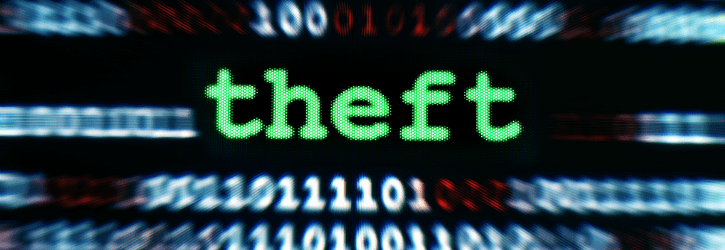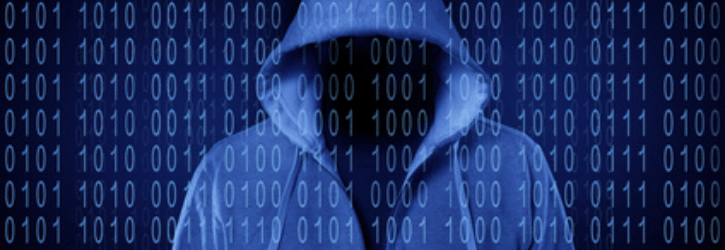
Welcome To The Data Leak Lawyers Blog
We focus on the latest news surrounding data breaches, leaks and hacks plus daily internet security articles.

We focus on the latest news surrounding data breaches, leaks and hacks plus daily internet security articles.

In June 2018, Ticketmaster revealed that a security incident had affected its website, causing the personal information of customers to be exposed. Discovered on 23rd June, the information was exposed due to the actions of an external hacker, but questions were raised regarding how far the incident had been caused by Ticketmaster’s own alleged negligence. We began taking on claims soon after the breach was announced, and we are now running our Ticketmaster data group action to ensure that those affected can receive the compensation that they deserve.
The breach has potentially demonstrated how insufficient cybersecurity could be responsible for mass information exposure. Thousands of customers had sensitive payment details exposed as a result of what we understand to be a system vulnerability, so we believe that Ticketmaster must answer for what has happened.
If you have been affected by this data breach, you can contact our team to find out if you have a compensation claim to make.

In late February, it was revealed that some customers of energy company Npower had suffered hacks of their accounts via the customer app that affected its users’ private data. The company has not put a number on the victims affected, but it is believed that the attack took place in early February, after which those affected were notified of their involvement. It is currently understood that Npower is not to blame for the hack, with no evidence that the company has breached data protection law. We will outline how the hacks happened in this article. Nevertheless, those with hacked Npower accounts are at immediate risk of fraud, with criminals targeting accounts to try to break into them as opposed to successfully breaking into Npower’s own servers and systems.
As advocates of data security, we believe it is important to highlight the risks Npower app users have been exposed to, even where the company is found to not be at fault for what has happened. Even if you have not been affected by the cyberattack, it still offers a valuable lesson about the risks of data exposure and the actions we can take as individuals to protect our personal data, and how criminals can target accounts to break into them.

In May last year, the news of the EasyJet cyberattack hit the headlines when the airline publicly admitted that the data of nine million customers had been hacked. Although the attack was first identified as early as January, some customers did not hear about their involvement in the breach until May.
Now, just over a year since the news of the incident broke, we continue to take on claims for those affected by the cyberattack. If easyJet is found to responsible for the exposure of their customers’ data, the company could be liable to pay out thousands of pounds in compensation to the victims.
As a leading firm of data breach and consumer actions lawyers, Your Lawyers- The Data Leak Lawyers – is leading a number of high-profile group actions against large companies, including travel companies like Marriott and British Airways. We have been representing clients for privacy matters since 2014, so we have the expertise needed to bring your data breach claim to fruition. Anyone affected by the easyJet cyberattack can contact us today to start their claim.

In May last year, we began to be contacted by victims in relation to the 118 118 Money data breach. Affected customers received a data breach notification letter telling them that their data had been subjected to unauthorised access. We judged that victims may have a case for a data breach compensation claim, and we are still taking claims on if you wish to seek justice for the exposure of your private data.
As leading, specialist data breach compensation lawyers, we believe that everyone should be able to access justice in relation to privacy matters. By giving a voice to data breach victims, we hope to bring them the compensation they deserve, and we are also determined to make companies face up to their data protection responsibilities.

In the digital era, private information is stored not only in filing cabinets and on computer hard drives, but also on cloud storage systems. Cloud computing is a key component of many businesses’ digital operations, meaning that many of the companies to which you have disclosed your personal information may choose to store it in a cloud database. When correctly operated, cloud storage systems can be nice and secure but, if not, cloud data leaks can occur, and your data may be at risk of becoming accessible online to unauthorised third parties.
Businesses must take care to implement appropriate security provisions when storing private data in the cloud. Unfortunately, many fail in their data protection responsibilities, leaving your information vulnerable to misuse.
If you have fallen victim to a data breach, you may be able to claim compensation for any harm caused to you. We strongly believe that your data security should never be compromised by a third party, which is why we help victims of data breaches to achieve the justice that they deserve.

Personal data is an incredibly valuable resource for cybercriminals who are developing increasingly sophisticated ways of stealing personal information and using it to commit fraud. Although many people may understand or have at least heard of identity theft, synthetic identity theft is a less familiar concept for many people. It is a risk that everyone should be aware of in our view, as it is one of the more sophisticated and evasive methods in the current cybercrime landscape.
Your Lawyers – The Data Leak Lawyers – as leading specialists in data protection claims, are always looking to raise awareness about data security issues and the potential cybercrime that can result from data breaches. If consumers remain unconscious of the risks and how they can happen, people may then be unaware of the right to make a claim if something does happen. To hold companies to account, we can bring compensation claims against them on behalf of data breach victims.
If you think you have been affected by a breach of data protection law, you can contact us for advice on your potential claim.

Data snooping attacks can represent one of the many methods that cybercriminals use to steal private information. Snooping methods are commonly used to steal data from insecure networks and other systems. Sometimes, data snooping is even used by well-known companies seeking to extract information relating to their users.
In the digital age, personal data is a valuable commodity, such that there is a large underground network of hackers and fraudsters who aggregate data for malicious purposes. With the risks growing and growing, third-party organisations must aim to safeguard the information that is under their protection.
In fact, all UK data controllers are legally bound to comply with the rules of the GDPR, meaning that they can be held liable when a data breach occurs. If you have been affected by a data breach, you may be entitled to claim compensation. Any victims can contact us for free, no-obligation advice about their potential claims.

When imagining a data breach in the workplace, our minds often go to database hacks or malicious cyberattacks. However, the risks of printers are not always considered. In fact, printer hacks can sometimes be just as dangerous, acting as a route into the wider company network.
The lack of awareness surrounding such risks can demonstrate that there is often poor education about data protection at many companies. Ensuring good data protection is not simply a case of implementing firewalls or antivirus software. It is also vital that employees follow strict procedures and are aware of what good practice is.
When a third-party organisation fails to protect your personal information, they may have breached data protection law. Where this is the case, you may be able to make a claim in order to be compensated for the damage caused. As leading specialists in data protection law, we help those affected by data breaches to access the justice they deserve.

As cybercriminals develop their skills and tools, we see increasingly sophisticated and malicious cyberattacks, many of which can cause adverse consequences for the victims. Cybercrime may well have been strengthened by the coronavirus pandemic, so the risk to personal information is at a high point.
For cybercriminals, the most effective cyberattacks are often those which are highly manipulative, backing their victims into a corner and leaving them defenceless. These cyberattacks can be capable of causing immense distress to the victims, which can last for months or even years after the breach.
However, cybercriminals are not the only threat to personal data. Many companies fail to implement adequate cybersecurity measures, leaving the information in their possession in a more vulnerable position. If a third-party organisation has failed to protect your data, they may be liable to pay compensation. No one should feel forced to accept a data breach, so contact us for advice if you think you may have a compensation claim to make.

Containing some of the most sensitive information we may ever disclose to a third party, our medical records require substantial protection, as all personal data does. Unfortunately, health organisations can be prime targets for hackers because of the value of this sensitive data, a problem that is often exacerbated by the failure of these organisations to implement sufficient cybersecurity methods. As a result, cybercriminals may be circulating countless medical records on the dark web, and victims need to know what to do.
If a third-party organisation fails to protect your personal data, in can be very difficult to prevent yourself from being exposed to the dangers of cybercrime. Because a data breach can come with a significant financial and emotional cost, the law can entitle you to claim compensation for the harm caused.
As leading, specialists in data breach law, we aim to help all victims who come to us to achieve the justice they deserve where we can. Do not hesitate to contact us if you have any enquiries about making a data breach claim.
EasyJet admits data of nine million hacked
British Airways data breach: How to claim up to £6,000 compensation
Are you owed £5,000 for the Virgin Media data breach?
Virgin Media faces £4.5 BILLION in compensation payouts
BA customers given final deadline to claim compensation for data breach
Shoppers slam Morrisons after loyalty points stolen
Half a million customers can sue BA over huge data breach
Lawyers accuse BA of 'swerving responsibility' for data breach
The biggest data breaches of 2020
Fill out our quick call back form below and we'll contact you when you're ready to talk to us.